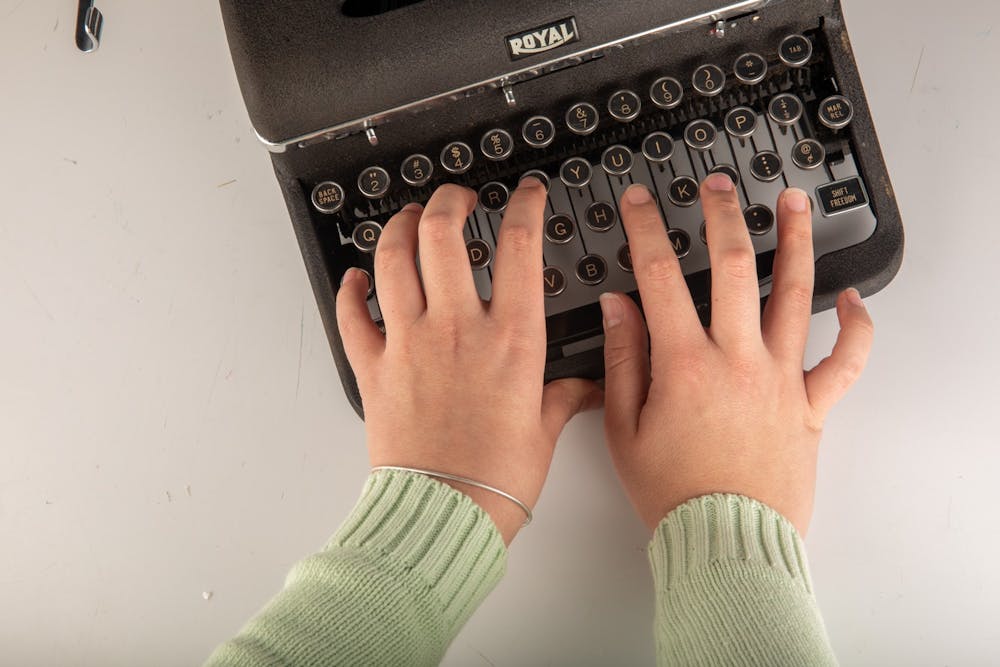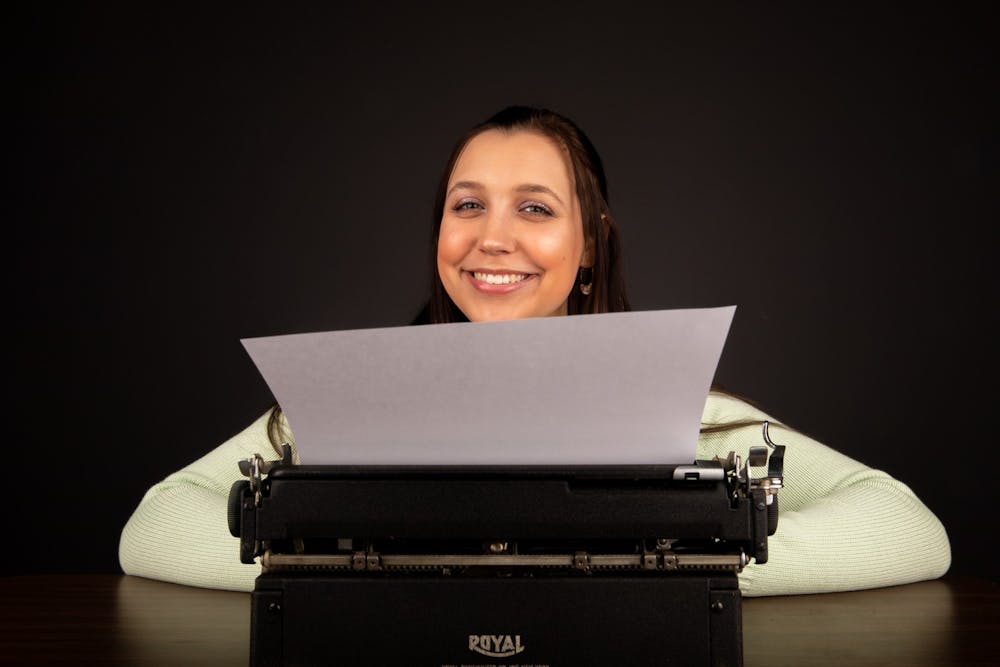
Taylor Smith is a sophomore news magazine major and writes “Bold Type” for The Daily News. Her views do not necessarily reflect those of the newspaper.
My mom had a typewriter in her old office. I would sit at the desk in the back corner and type my name over and over again until I reached the end of the line, and then, I would push the lever on the left-hand side until I was back to the beginning — just one line lower — and type “mommy” below my name. The pattern continued until I exhausted every name of every family member I could think of, and then, I started over again.
As I got older, the names turned into short stories and letters I would write to my aunt, who was sitting less than 20 feet away from me at her own desk. I would slide my letters under the door to her office, and when I went back to work with my mom a few days later, they would be taped to the wall above her desk. They were barely legible because I typed letters over other letters, and sentences traveled across the page diagonally, moving up and down because I never positioned the paper correctly.
But I kept typing.
I loved the sound the keys made when I clicked them, the way my hands traveled up and down the keyboard as I wrote whatever story my imagination created at that moment, the way I immediately had a physical copy of my work in my hands as soon as I finished typing.
Everything seemed simpler.
I currently own two typewriters, both given to me as gifts. One is incredibly old. It weighs upward of 20 pounds and sits on an armoire in my bedroom as a reminder to always keep writing. The keys still click, but the ink has dried up, and it is so old that replacing the ribbon wouldn’t help much. The other one was a Christmas present. It still works. It’s baby blue and yellow and comes with a carrying case that weighs what feels like a hundred pounds. The keys click and mark the pages with whatever I tell them to, and as soon as I finish writing, my work is in my hands, and there’s only one copy of what I have written in the entire world.
That’s what makes typewriters so special — my work is instant. My work exists only in one place. There are no databases or flash drives holding on to coded files with my words somehow saved in them. There is just a single piece of paper, a piece of paper I can physically hold in my hands.
Every writer should have a typewriter, not because they don’t require Wi-Fi or electricity to function (although it is a plus) and not because the keys are fun to click — but because they keep your work safe. A Clark School study at the University of Maryland concluded, on average, every 39 seconds, hackers are able to attack computers with internet access. Not only that, but the computers used in the study were attacked, on average, 2,244 times per day — nearly 100 times every hour. I imagine having everything I have ever written stolen and find comfort in the fact there is still a way I can keep my writing private, safe and protected.

Jacob Musselman, DN Illustration
With a typewriter, my writing is completely my own. There is no risk of anyone hacking me and stealing what’s mine, and because of that, I prefer using my typewriter over anything else.
Not only do typewriters keep your work safe, but they offer a distraction-free way to write. With no way to connect to the internet, with no screen to show your dad’s status update on Facebook, there is no way to access what ultimately causes the most distractions while I write.
At that moment, it is just me, my typewriter and my words, and nothing will distract me from the ideas that continuously develop as I type away, enjoying the clicking and clacking of each key. The only thing to distract me is the noise of my own typing, and I find that each letter I type only makes me want to write even more.
Yes, it is 2020. Yes, laptops have been around for decades. And yes, sometimes it is a lot easier to write on a computer, but something about writing on a typewriter helps me feel connected to what I am writing. Everything feels more personal, and because it is impossible to erase any mistakes I make or delete any paragraph I don’t like, it forces me to take my time, truly think about what I want to say and write it in the best way I possibly can.
My typewriter transcends time, it helps me keep my work safe and it makes me a better writer.
Contact Taylor Smith with comments at tnsmith6@bsu.edu or on Twitter @taynsmithh.




